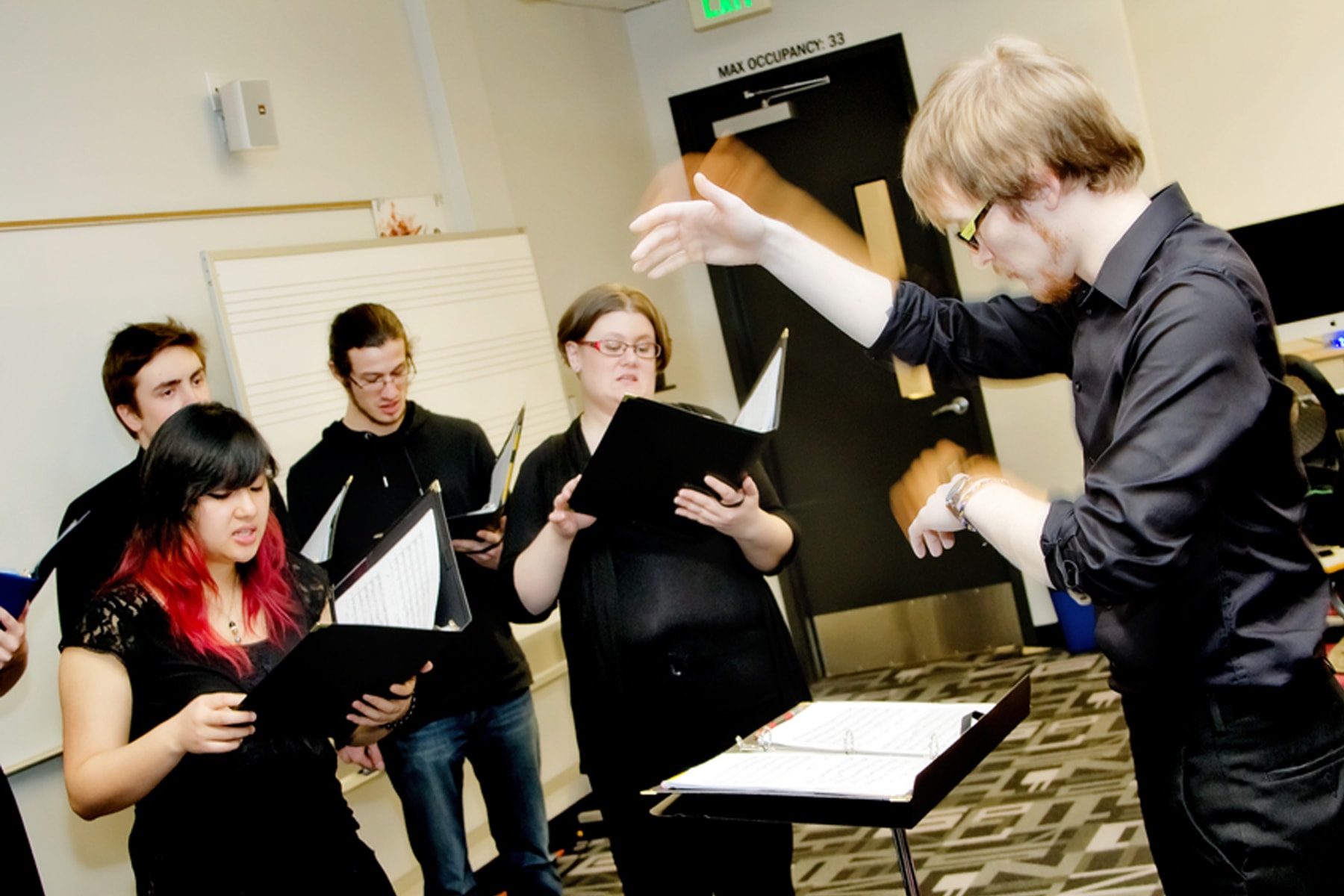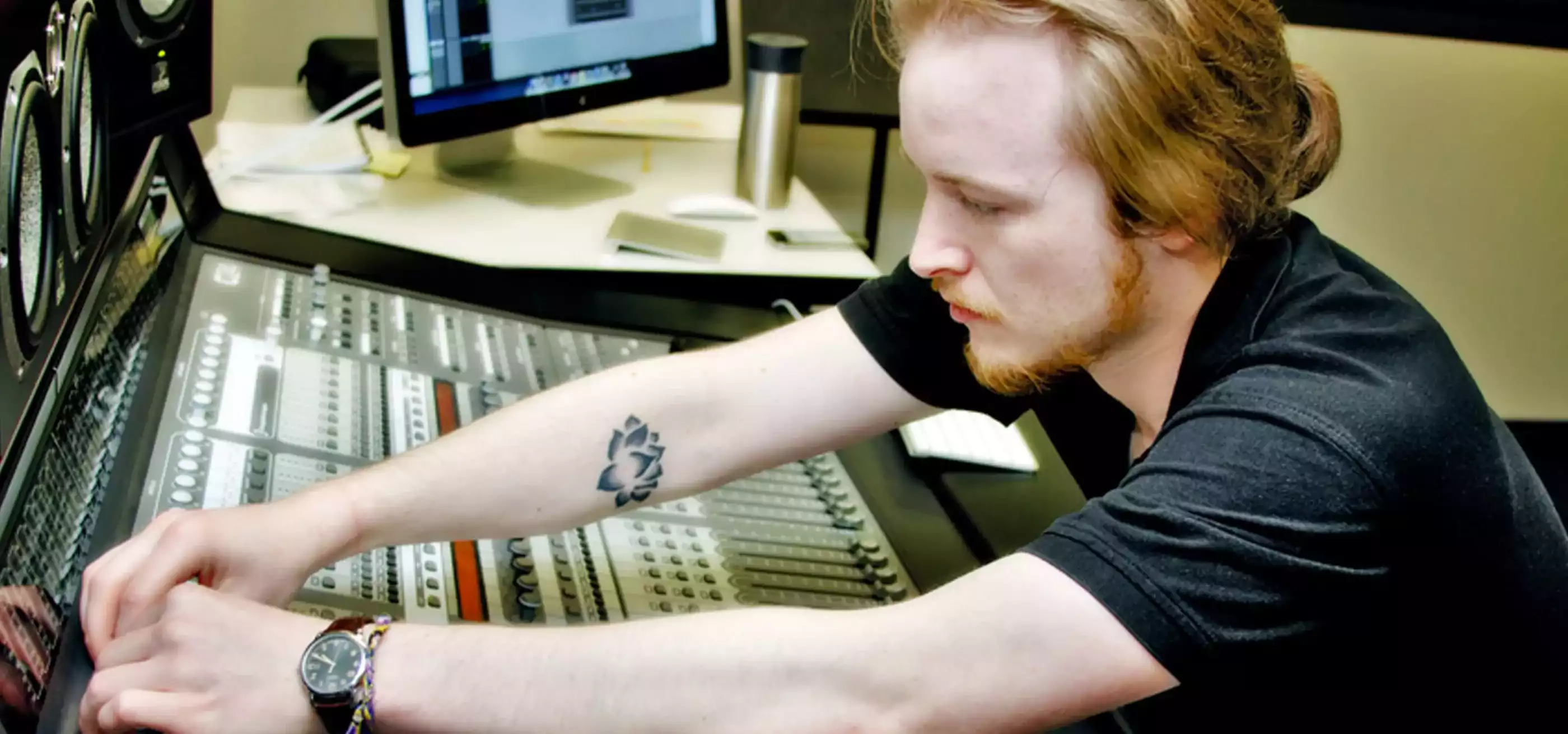Ian Shores is pretty good at having his hands in a lot of places at once — not surprising for someone who has played the piano since age 4.
As a junior in the B.A. in Music and Sound Design program, he studies a wide range of subjects, including music theory, performance, and professional sound engineering. He conducts for the DigiPen Game Choir campus club, using his arms and expressions to lead his fellow students through vocal arrangements of song and medley. He’s also the manager for DigiPen’s recording studio and sound labs, a full-time job he balances with his daily studies.
It’s a weird fusion of musical sensibilities and logical processes.”
And, like most of his fellow classmates, Shores spends much of his time creating original compositions and audio soundscapes for student game projects.
Even after just two years of his degree program, Shores has collaborated both as a composer and sound designer on several titles, including the 2014 sophomore puzzle game From Where She Dreams and the 2013 freshman game Mitosis.
“It’s thrilling and incredibly frustrating — thrilling because there’s so much more creative energy that comes out of writing for games, because it’s not like you’re writing an art song or writing a pop song,” Shores says. “In games we have to deal with things that seamlessly loop and things that have to sometimes be interactive and adaptive. It’s a weird fusion of musical sensibilities and logical processes, and it has a big effect on my creative output — a positive effect.”
The frustrating part, he says, has more to do with helping educate others about the proper role and responsibilities of a sound designer.
“A lot of people don’t realize that we’re not just content creators. We don’t just make a song and make a sound effect and deliver it. Implementation is really the bulk of our work. We need to iterate, just like everybody else,” he says. “For most sounds, it will take me a minute to make. But when it goes into the game it’s too loud, or it’s too soft, or it’s happening at the wrong time, or the same sound is being called 20 times in a second.”
Luckily, he says, game teams are beginning to pay much closer attention to sound design, and the games themselves are improving.

The sophomore game Forsaken, he says, involved the work of three sound designers (including Shores). And the junior brawler Coffee Break, featuring sound design by Johnathan Henke, incorporates over 900 recorded voice files for dialogue and effects.
“I remember last year looking at the games and thinking, ‘Wow! These are so much better than last year. I think we’re going to be in a low tide next year,’” he says. “But they’re just even better. They’re actually getting better.”
Outside of his work on student projects, Shores continues to dabble in a wide range of musical interests and activities. That includes his continued formal training in piano performance and composition, as well as teaching others through DigiPen’s ProjectFUN Summer Workshops.
I like doing a lot of things, and if I’m learning, I’m happy.”
He will also soon be branching out into some extracurricular work as sound designer for the Kickstarter-funded game Four Sided Fantasy, developed by graduate Logan Fieth and other former DigiPen students.
“I like doing a lot of things, and if I’m learning, I’m happy,” Shores says.
